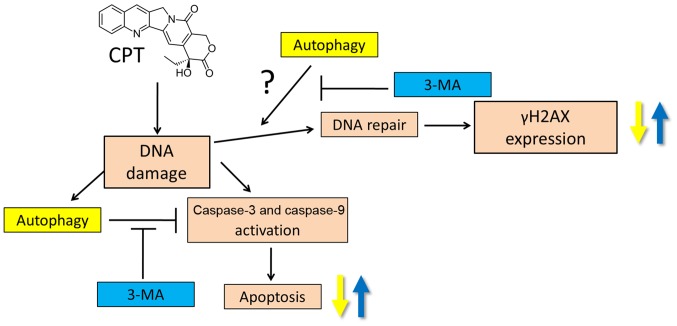Figure 11.
Proposed model of autophagy-mediated CPT resistance in NSCLC cells. H1299 NSCLC cells exhibit CPT resistance, in part, via CPT-induced autophagosome formation, which decreases cell cytotoxicity and apoptosis. CPT-induced autophagy may also attenuate DNA damage of lung cancer cells by decreasing γH2AX expression (yellow arrows). 3-MA suppressed autophagosome formation and enhanced the anticancer effects of CPT through increasing cell cytotoxicity and apoptosis (blue arrows). Elevated γH2AX foci also demonstrated that 3-MA-induced autophagy inhibition may participate in the anti- cancer activity of CPT via DNA damage, but not DNA repair. Accordingly, the present study may provide information regarding the association of autophagy with acquired CPT resistance in lung cancer cells, and the regulation of autophagy may be a promising strategy for treating lung cancer cells that constitutively exert activation of autophagy in response to CPT-based drugs, including irinotecan or topotecan. The question mark indicates further investigation is required. Solid lines represent theregulatory effects identified in the present study.

